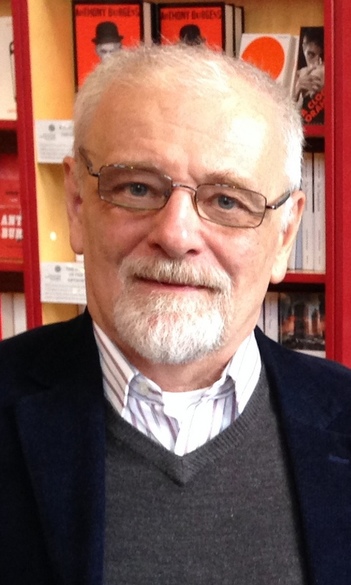Dr. habil. Ákos Farkas
associate professor

Biography:
After graduating in 1980, I started teaching in public and then in adult education, to begin my career in higher education in 1986. Ever since, I have been working fulltime at Eötvös Loránd University (ELTE), first as a lecturer and eventually, from 2002, as an associate professor, teaching English language, culture and literature. In the meantime I taught courses in the same subject areas at various universities in Hungary and abroad (at Péter Pázmány Catholic University, the Gáspár Károli University of the Reformed Church, and the University of Miskolc; Seneca College, Toronto and the University of Passau). I have supervised more than a hundred BA and MA theses, an award-winning entry for the National Scientific Students' Associations Conference as well as two doctoral dissertations, and two more PhD dissertations are now being prepared under my supervision. I headed two doctoral programs for years and was the head of ELTE’s Department of English Studies from 2013 to 2016. I received research grants twice – first as a research fellow at Indiana University, then as a doctoral student in Hungary, both from the Soros Foundation. By November 2020, I had reached the statutory retirement age and I will in fact retire on 15 September 2021.
Research:
The major areas of my research include 20th century and contemporary English and American fiction with a focus on Modernism and the Postmodern, the oeuvres of some outstanding novelists (eg., Joyce, Huxley, Burgess). I have published studies of the dystopian literature of the 20th century, the theory of intermediality and literary film-adaptation, and the history of the English Catholic novel. Recently I have been studying the relationship between science and literature, closely following the major developments of Cognitive Literary Studies (CLS).
Selected publications:
- “Student of Two Masters: David Lodge and the Dual Tradition of the Novel”, SKASE Journal Of Literary And Cultural Studies 1.2 (2019): 2-11.
- “What They Were Going to Do About It: Huxley’s Peace Pamphlet in Pre-War Hungary.” Utopian Horizons: Ideology, Politics, Literature. Ed. Zsolt Czigányik. Budapest: Central European University Press, 2017. 181-199.
- “To Whose Self Be True? Students Look at The Turn of the Screw and Its Film Adaptations.” Hungarian Journal Of English And American Studies 22.1 (2016): 95-112.
- “Cukormentes Gépnarancs: Egy disztópia három nézetben.” Utópiák és ellenutópiák. Ed. Katalin Kroó and Tamás Bényei. Budapest: L'Harmattan Kiadó 2010. 209-233.
- Will’s Son and Jake’s Peer: Anthony Burgess's Joycean Negotiations. Budapest: Akadémiai Kiadó, 2002.
Selected conferences
- “Who Nose Best? A Sensory-Ethical Approach to Eyeless in Gaza.” Excellence in Arts and Sciences: The Huxley Family, organiser, ELTE-MTA, Budapest, Hungary, 2019.
- ”'Lilies that fester’: Burgess and the Campus Novel.” Burgess 100 Budapest: A symposium celebrating Burgess's centenary Symposium, organiser, ELTE, Budapest, Hungary, 2017.
- “Piercing the Iron Curtain: Burgess and East-Central Europe.” Centenary Conference: Life, Work, Reputation, IABF International Anthony Burgess Foundation, Manchester, England, 2017.
- “Caught in a Double Bind: Hungary’s Women Writers Before and after 1920.” Gendering Peace in Europe, 1914-1945, UOF University of Sheffield, Sheffield, England, 2017.
- “220 év oktatásért, tudományért és kultúráért: a Huxley család.” Conference commemorating the the 70th anniversary of UNESCO, MTA-UNESCO, Budapest, Hungary, 2015.
Teaching
The course catalogue of SEAS lists 153 courses taught by me at ELTE over the past three decades; of these, here are the most recently taught five:
Lectures:
- English literature from 1890 until the 1960s
- Contemporary literature in English
- Chapters from British Literature and Culture
Seminars:
- The Modern Novel in Print and on the Screen
- Modernism in Brief: Short Fiction from the Turn of the 20th Century to the 1960s
- The End in Sight: Utopia and Dystopia in Print and on the Screen
Supervision
- 20th century British fiction
- Utopias and dystopias
- The poetics of place
- Intermediality and adaptation theory
- Cognitive Literary Studies

